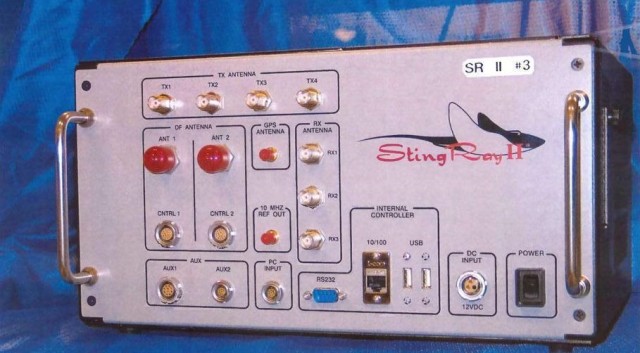Privacy Activist Sues CPD For Records Related To Cellphone Monitoring
By aaroncynic in News on Oct 2, 2014 6:10PM
A local privacy activist has filed a second lawsuit aimed at the Chicago Police Department after CPD released a handful of documents admitting it has equipment that monitors and tracks cellphones. Freddy Martinez filed his first lawsuit against CPD in June, demanding it turn over records related to purchases of ISMI catchers, commonly referred to as “Stingrays,” devices which mimic cell phone towers and collect data from phone calls, texts and more. Martinez’s first suit garnered a meager three pages of invoices that show CPD purchased the technology.
According to ARS Technica, the second suit aims to collect:
- All court orders for any instances in which Chicago Police deployed IMSI Catchers
- All formal or informal policies, procedures, orders, directives, or other such records that pertain to when, why, where, how, and by whom IMSI Catchers may be deployed
- All records discussing the constitutionality of deploying IMSI Catchers
In an interview with CBS Chicago, Martinez said:
“It’s strongly suspected that the Chicago Police Department does monitor protesters and constitutionally protected activities. They bought them. We don’t know if they’re using them, because they haven’t told us, but what kind of violations are we talking about here.”
While the department says it’s keeping as quiet as it can on the issue due to the pending lawsuit, preventing the public from knowing the full spectrum of stingray use is an all too common practice nationwide. According to an interactive map from the ACLU, 43 agencies in 18 states own stingray technology, and even that number is a low estimate because agencies are secretive about their purchase and use.
According to heavily redacted documents procured by the collaborative news site Muckrock, police in Tacoma, Washington were required to sign a nondisclosure agreement with the FBI before purchasing IMSI equipment. When the ACLU sued the Tuscon, Arizona police for records related to stingray technology, the department invoked the nondisclosure agreement with the FBI. Emails released by the ACLU show that Florida police craftily concealed the use of stingray equipment in court documents related to criminal investigations.
Privacy advocates nationwide have said the use of cell phone tracking and monitoring technology raises serious Constitutional concerns. “The public has a right to know the extent to which the police are secretly taking information from their cell phones and whether their Constitutional rights are being protected in the process,” said Matt Topic, Martinez’s lawyer.
